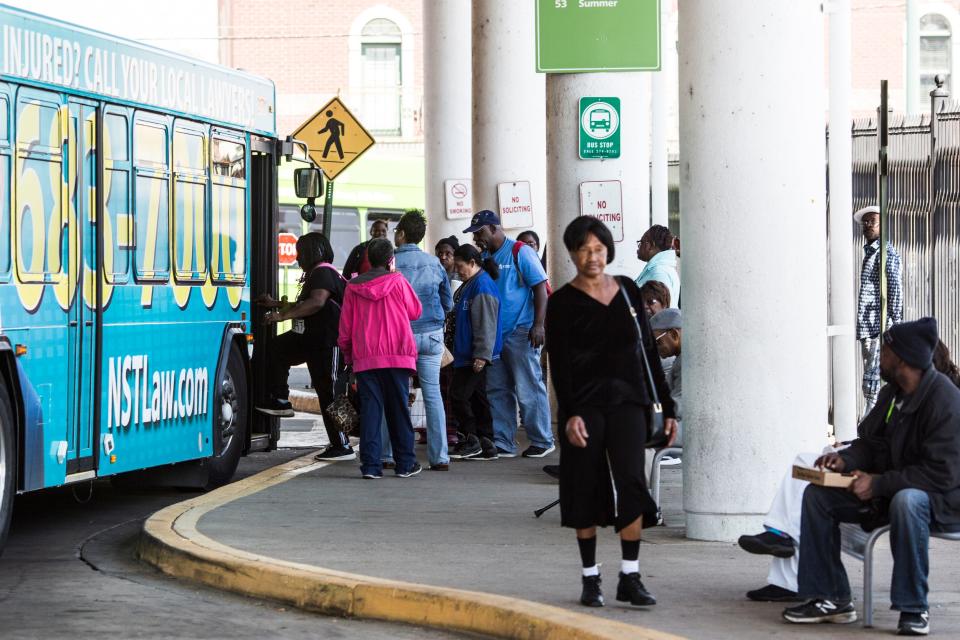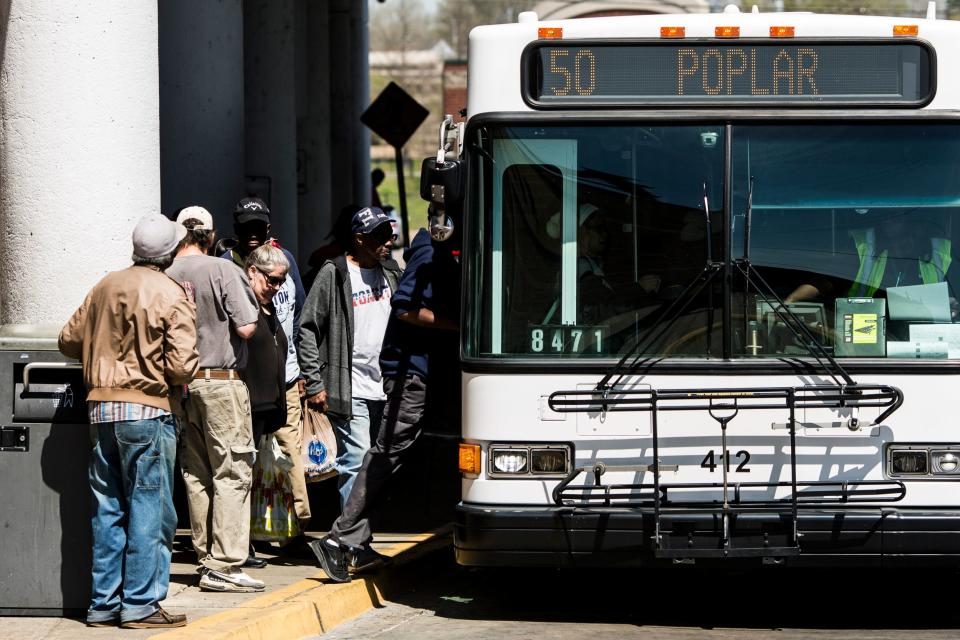MLK wanted black people to ride buses without issue. How Memphis is still taking on his cause

MEMPHIS, Tenn. - When Shelby County Mayor Lee Harris was born, Martin Luther King Jr. had been dead 10 years.
The civil rights icon was killed in Memphis on April 4, 1968, after he came to Memphis to help its African-American sanitation workers fight for fair wages and basic dignity. He was fighting for things that were viewed as a given for white people, but seen as an afterthought, if that, for black people.
The cause that brought King to Memphis bore the same undertones as the cause that led him to help Claudette Colvin and Rosa Parks for refusing to give their bus seats to white men in Montgomery, Alabama.
As president of the Montgomery Improvement Association in 1955, King organized a bus boycott that lasted 381 days — and led the Supreme Court to rule, in 1956, that segregation on public buses was unconstitutional.
But today, the struggle in Memphis and throughout the nation isn’t about whether African-Americans will get to sit down during their bus ride. It’s about whether there are enough buses for them to ride on, period.
Martin Luther King Jr. quotes: 10 most popular from the civil rights leader
And the fight for transportation fairness, a fight that helped to shape King, is one that Harris is reviving five decades after the civil rights icon's slaying.
“He [King] was all about fighting inequality, and his leadership style was polite, but unapologetic,” Harris, 40, said. “I’m polite too, but I will call it as I see it.”
The way Harris sees it, investing in public transportation is one way to honor King.
'We have to help people get to work'

Later this year, Harris said he will present a plan to use county funds to support the Memphis Area Transit Authority. Because it has no dedicated funding source, MATA constantly grapples with decisions on which routes to cut service to, or to eliminate — even though, according to a report by Innovate Memphis, nearly half the jobs in the city are 10 to 35 miles away from the poorest residents.
A key part of that plan, Harris said, will be to see to it that service in the urban core is increased — so that people who can’t afford cars can get to jobs, and get home in time for dinner with their families.
“I think there’s a straight line from what we saw in the 1960s to today,” said Harris, a lawyer who previously served as a Memphis city councilman and state senator. “There are lots of people at the bottom, and we have to do what we can to reduce the inequality that keeps them there …
Martin Luther King Jr. Day: At Ebenezer Baptist Church, a call to action to end 'chaos'
“That means we have to help people get to work.”
For many in Memphis, that remains a struggle.
Last year Sammie Hunter, co-chair of the Memphis Bus Riders Union, had to take a bus to and from his job at Methodist South to his home on Applewood Cove, near Memphis International Airport. The five-mile trip took two and a half hours — and required him to transfer at three stops and to walk a remaining mile to get to his home.
Hunter, 55, has since moved to East Memphis in search of more efficient transportation. While he no longer must walk a mile to his home — the stop is in front of his house — he said it still takes him two hours to get to and from work.
Martin Luther King Jr.: His life and words are a great guide for entrepreneurs
How transportation impacts poverty
This isn’t what King wanted, Hunter said. But he said he believes Harris is sincere about trying to fix it.
“I think he’s trying to do the best he can, because he knows how rough it is for us out here, people who are just trying to work and to make a living,” Hunter said.
Much work remains to be done in that area. And it’s important that it be done — because reliable public transportation is key to alleviating poverty. A 2015 Harvard study, in fact, found that commuting time was a significant barrier to climbing out of poverty.
MLK Jr. and bus rights: Decades after MLK forced mass transit to treat black people fairly, it still fails them
With Memphis being the nation’s second-poorest large metro area, it doesn’t take much of a leap to see how public transit woes worsen that problem.
That’s why, on the 51st year since King was assassinated in Memphis, it’s good that Harris is dedicated to picking up where King left off.
The only difference is that, while the Montgomery bus boycott was about racial dignity for African-Americans as they rode on the bus, this fight is about making the bus system work efficiently enough to grant poor people in Memphis and in Shelby County another form of dignity.
That would be the dignity of having a good job. Without having to ride for more than two hours to get to it.
List: The 10 cities with the best public transportation
Follow Tonyaa Weathersbee on Twitter at @tonyaajw.
This article originally appeared on Memphis Commercial Appeal: MLK wanted black people to ride buses without issue. How Memphis is still taking on his cause

